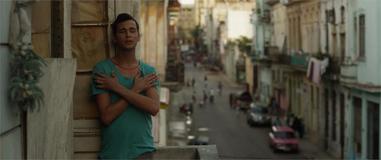 Taking place in Havana, Cuba, Paddy Breathnach's Viva tells the story of Jesus, a hairdresser, who primarily works for a troop of drag performers. Jesus secretly dreams of being one of these drag performers himself, and when he finally gets the chance on stage, a stranger emerges and punches him in the face. What appears as a random act of violence at first, quickly sends Jesus into a state of self discovery and confrontation as the stranger is in fact his father, Angel, a former boxer, who walked out on Jesus in his mother over 15 years ago. Featuring clashing ideologies about what it means to be a man, Jesus and Angel struggle to reconnect, eventually coming to except one and other which is aided by Angel's deteriorating health. Paddy Breathnach's Viva is definitely a story that you've seen before, a somewhat by-the-numbers story about acceptance and in turn forgiveness which succeeds more so than not thanks to strong central characterizations and performances by the actors which bring them to life. The setting of Viva is a major component to its storytelling, as the crumbling building and dingy streets of Havana perfectly illustrate the stakes of many of its characters, individuals who are surviving in poverty and want to escape through environment. Jesus makes his money as a hair dresser and seems to find a sense of empowerment from being on the stage, one of the only characters in the entire film who show no strong desire to leave Cuba. Before Angel arrives, Viva's interactions are almost entirely of the feminine variety, his only interactions with men coming when he is on stage, delivering his drag performance. With the arrival of Angel, Viva's feminist world is somewhat shattered, with his father being the rugged definition of masculinity, an ex-boxer whose idea of toughness is completely defined by physical attributes. Angel views his son as weak due to his homosexuality and penchant for drag, though as the film progresses it becomes very clear that Angel is in fact the weak character, a man who abandoned his son and turned to the bottle when his boxing career didn't pan out. What elevates Viva among similar films is the films ability contrast these two separate viewpoints of these characters, with the relationship that unfolds between Angel and Jesus feeling organic and poignant, as the filmmakers impressively make not only Jesus, but Angel a empathetic character, a man who is a vile human being when first introduced. Viva is a film that is as much about forgiveness as it is acceptance, as Jesus struggles to forgive his father for abandoning him while Angel comes to eventually accept his son. Viva never makes Jesus' forgiveness or Angel's acceptance feel too connected, which I really liked, as the two characters take different psychological paths to reconnect, forgive and forget. Paddy Breathnach's VIva may be a film you've seen before, but it's a powerful LGBT film about acceptance, forgiveness, identity and most importantly toughness, in the end showing that toughness is not simply a physical trait but something that comes from within ones-self.
0 Comments
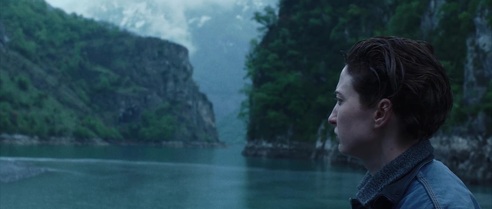 Laura Bisapuri's Sworn Virgin is a powerful tale of oppression, the importance of individuality, personal identity, and a somber reminder of the secondary status of woman in many reaches of the world. The film is centered around Hana, a character who years ago declared her eternal virginity, opting to live as a man in the remote mountains of Albania. Leaving the secluded mountains, Hana, who now goes by Mark, arrives in modern-day Milan where her sister currently lives a more progressive lifestyle. His intentions are never stated, but it's clear that Mark/Hana has fled from this lifestyle, and when introduced to a more progressive society, she slowly begins to discover oneself, settling into his new existence in Milan where he is free to be exactly who she wants to be. Sworn Virgin is a film of very little dialogue, where the filmmakers rely heavily of the strong central performance and quietly contemplative atmosphere to tell this story of oppression. Told through a narrative that interweaves between Hana's present in Milan and her past in the secluded mountains, Sworn Virgin paints a convincing portrait of oppresion, where misogyny reigns and woman are viewed primarily as caregivers, second class citizens to their male counterparts. Through this interweaving narrative, Sworn Virgin captures how Hana's past dictated her present, slowly revealing how her perceived debt to her father and desire to appease him led to her current state of confusion and subtle regret of being something she never individually desired to be. The opening few minutes of the film are a fantastic example of Sworn Virgin's artistic, meditative storytelling. Combining handheld photography with wide angle cinematography, Sworn Virgin's visuals evoke a sense of solitude and utter isolation im the character of Hana as she leaves the small mountain town, not a word is spoken, but Hana's inner turmoil and internal solitude are felt thanks to the visual storytelling. Laura Bisapuri's Sworm Virgin is a film not only about feminism but a larger study of the overall negative impact which oppressive society can have on individualism, with the character of Hana eventually becoming more comfortable in her own skin thanks to his sister and young niece teaching her that she can't let her personal identity be dictated by the rigidity of society 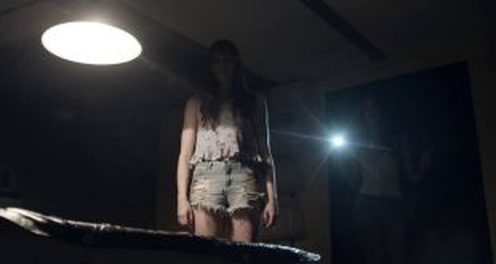 Viet Nguyen's Crush the Skull is the story of Ollie and Blair, an early 30s couple whose income is derived from breaking into unsuspecting households and stealing money and property. While at first thrilling, Blair has begun to grow tired of their against-the-law lifestyle, eventually convincing Ollie to give up their trade as master thieves and move on to the next phase in their lives. On their last heist, things don't go as planned, with Ollie getting arrested, which in turn prompts Blair to make a deal with the local crime lord to get Ollie released. Of course, this leaves Ollie and Blair in debt to the crime boss, forcing them once again to perform one last heist in an effort to pay off their debts and escape from the dangers of their profession. Things don't go exactly as planned, with the master thieves finding themselves trapped within the house they intended to rob, slowly discovering that the owner may in fact be a deranged serial killer. As much a comedy as it is a horror film, Viet Nguyen's Crush the Skull is a very fun, low-budget horror comedy which manages to balance both of its genres extremely well. The story itself is simple yet engaging, with the filmmakers creating a nice sense of chaos once the thieves find themselves trapped in this deadly game, with Crush The Skull delivering a claustrophobic, chaotic atmosphere that never feels particularly predictable, due in part to its ability to seamlessly infuse its comedy and horror elements. What impressed me so much about Crush The Skull is its ability to maintain its demented, horror qualities despite its heavy comedy, especially when considering the fact that Crush The Skull delivers enough laugh to be considered more a comedy than horror film. The script is witty and self-aware, playing with not only the tropes of the horror genre but more-so the stereotypes of its characters, which consist of both Asian-American and Caucasian characters, delivering a film that is somewhat self-aware but still interested in creating a fun, demented horror film. While the film does suffer from some of the problems many American low-budget films do, with acting that leaves something to be desired for example, Crush The Skull is a simply put, a lot of fun, being a film which uses its unhinged ability to make you laugh one scene and cringe in horror the next to deliver an enjoyable and engaging experience.  Steve Chen's Dream Land is the story of Lida, a young woman working in the quickly developing metropolis of Phnom Panh. Working as a real estate agent for upscale estates, which are being rapidly sold to the growing middle and upper classes as well as foreign investors, Lida is continuously suffering from the heartache and questions surrounding her current relationship with her boyfriend, Sokun, a fashion photographer. Steve Chen Dream Land is a simple, yet effective story about one woman's internal prison of doubt and uncertainty, a graceful and mature story that is impressive for a first time filmmaker, which touches on the pain, insecurities, and utter-isolation which a deteriorating relationship can have on the psyche. This is a film about the overall importance of trust in a relationship, with Lida's lack of trust, which seems to be well warranted, being what pushes her towards a more unstable emotional state. Dream Land captures the overall power of memory in times on contemplation as well, with Lida's positive memories of the good times with Sokun being a powerful source of her unwillingness to right off this man completely and start over. Dream Land's visual design is meticulously crafted and a central aspect to the film's success at capturing this woman's story, with Chen using an array of cinematic devices to capture the closed-in, trapped psyche of a character who struggles to express her doubts and insecurities with her boyfriend, a man she once communicated with such easily. One of the more alluring cinematic aspects of Dream Land is Chen's decision to routinely obstruct the compositions. Nearly every scene in which Lida and Sokun are in a room together Chen obstructs the frame in some capacity, whether it be overlaying images in the foreground, using blinding sunlight in the background, or simply a screen flare of light, Chen's compositions evokes the dream-like sense of stagnation, exhibiting Lida's sense of being adrift in a relationship in which the end game remains unclear, obstructed by her partner's lack of communication and dishonesty. Chen also uses the architecture of the budding metropolis of Phnom Panh, with large window panes and enclosed spaces of the apartments Lida hawks being another symbolic representation of the sense of enclosure she feels by not knowing where she stands with the man she loves. One of the most fascinating aspects of Dream Land is Steve Chen's juxtaposition of the old vs. the new Cambodia with Lida's internal struggle to rid herself of the memories and mistakes of her past, as the filmmakers have created a film in Dream Land that feels both incredibly intimate while simultaneously vast about the fast-paced changes Cambodia faces in its rapid modernization. Steven Chen's Dream Land is a beautifully composed film about time, space, memory, and regret, a film that slowly, and methodically reveals how Lida's relationship with Sokun was a dream, a desire of what she wants out of her love, with her memories and insecurities serving as the ultimate facade that hides the truth.  Philippe Faucon's Fatima is a nuanced examination of the immigrant experience told through the eyes of Fatima, a resilient immigrant mother of two, who works as a house cleaner in Lyon. Managing to be both a deeply personal study of maternity and sacrifice, as well as a pointed, grand examination of the challenges and obstacles facing migrants as they attempt to assimilate into French culture, Philippe Faucon's Fatima is a timely film, told with craft and care. Fatima is supporting two daughters in Souad, a 15-year-old in the middle of teenage rebellion, and Nesrine, a 18-year-old who has just started medical school. Phillippe Faucon's Fatima is a film that works so well due to its strong characterizations, with Fatima and her two daughters all being characters who are dealing with their own sense of adjustment to French culture. Souad, who is simply in that time of teenage angst and rebellion, has growing animosity towards her mother, resenting her mother's remedial job as a maid for how it reflects on her. Souad perceives her mother as being exploited by French Society for doing such remedial work, unable to understand that her mother does it solely for her daughter's financial and personal benefit, as Fatima wishes for nothing more than her daughter to succeed in France. Nesrine on the otherhand, is on the path to success but faces harassment from the Arab community for her decision to go to medical school, a community which routinely attempts to guilt the 18-year-old for leaving her mother's home to pursue her degree. These various issues facing both Souad and Nesrine reflect back onto Fatima, with the root of all these character's struggles being representative of the persistent culture clash which exists with any type of immigrant community. Make no mistake, Fatima is the star here, a character who goes to rather extreme lengths to support her daughters, each of which has had a much easier time assimilating into the French way of life. This sense of solitude follows Fatima throughout the whole film, as the filmmakers present a character in Fatima who is stuck in a world she doesn't quite understand, sacrificing and working hard regardless for the sake of her daughter's futures in France. Carefully directed, using static photography and well-crafted compositions to tell Fatima's story, Philippe Faucon has created a graceful film which beautifully captures the many disadvantages facing this character who struggles to assimilate into a new culture, something which her daughters have managed. Fatima is a film that is never overly sentimental or overly dramatized, not seeking sympathy for Fatima per se but presenting an honest portrait of the immigrant experience that is honest and heartfelt. At its core, Philippe Faucon's Fatima is a story of maternal sacrifice and persistence, delivering an artistically told story of one such Arab family living in France, a story of the challenges and experiences which I would imagine aren't singular, many of which are shared from other members of the migrant community.  Lauren Lariviere's I Am A Soldier is a powerful tale of circumstance, desperation, and the deterioration of morality which can occur in such times of strife. Centered around Sandrine, a young woman, who has just been forced out of her apartment due to lack of income after losing her job, I Am A Soldier begins as a quietly, observational study of the isolation one can feel in times of pain, focusing on how powerful the feeling of failure can affect the psyche. Moving back home to her Mother's house, Sandrine feels completely isolated, struggling with life while her mother and sibling seem to be relatively happy with stable jobs and a budding young family in the case of Sandrine's sister. Still struggling to find a job, Sandrine is invited to work with her uncle at his dog kennels, soon realizing her uncle's business practices and financial success Isn't exactly rooted in legal business. I Am A Soldier is a fascinating examination of morality conflicting with survival, which itself is defined by money in contemporary society. Sandrine is a beautiful young woman who enters the dark world of dog smuggling, something which pierces her sense of morality and she is forced to ignore the pain for the sake of financial structure. I Am A Soldier is a quietly angry film about how money corrupts, finding Sandrine entering into the world of illegal dog smuggling as a way to support herself. It's very understated in the film, but I believe it is the fear she has of being homeless and jobless that keeps her going for awhile as she witnesses some rather unsavory things. As Sandrine falls deeper and deeper into this world her life becomes more stable financially, yet her psyche grows increasingly troubled, as she begins to question the moral consequences of her actions. The uncle in this story is a quietly menacing character, someone whose morality has long been compromised for the sake of financial gain. This is a man who the audience will grow to dislike but it becomes clear that he is an important character to this story, representing the future version of Sandine if she continues to follow down this path. Towards the finale of the film, Sandine's actions and near tragedy are what forces her uncle to realize the error of his ways, realizing the harm he has done to his niece because of greed, making this character somewhat empathetic through establishing the financial struggles affecting many characters.. In the end, Laurent Lariviere's I Am A Soldier isn't so much anti-capitalist but more a study of how morality deteriorates in times of desperation, showing how money is simply the tool we define success by and because of that it can lead towards moral bankruptcy.  Clement Cogutore's Neither Heaven Nor Earth is an utterly unique exploration of the deep-seeded casualties of war, being metaphysical evocation of the strain and pain of human conflict that is always interesting regardless of the film's struggles with delivering a cohesive vision. The film is centered around a French captain Antares Bonassieu, who is in charge of himself and 12 NATO patrolling an area of Afghanistan in search of Taliban forces. On high alert, the soldiers live in a constant state of tension, with uneasy relationships among local villagers and the continually threat of the Taliban forces breathing down on them at every turn. When two of Antarès men disappear in the middle of the night, Antarès makes it his mission to find the men, though as his efforts grow more futile, both Antarès and his soldiers grow increasingly fearful as their fears begin to consume their psyches. Neither Heaven Nor Earth is a film about mood and atmosphere, delivering a story that captures the utter isolation felt by soldiers in conflict. The uncertainty, isolation, and utter lack of control of being in a foreign setting is felt in every frame, as Antares, the captain, finds himself faced with the responsibility and tough decisions once his men begin to go missing. This burden and pressure felt by Antarès begins to consume him, as Neither Heaven More Earth captures how this responsibility becomes a deep-seeded burden, with Antarès psychologically effected by his inability to protect his own men. The disappearance of these men take on a supernatural quality in Neither Heaven Nor Earth, as the filmmakers use their disappearances to symbolically capture the lack of control soldiers truly have in a war situation, where all the training and preperation falls victim to primal emotions such as fear and regret. The film simply captures how quickly man can unravel in times of chaos, with Antarès struggling more and more to comprehend all the forces around him. Clement Cogitore's Neither Heaven Nor Earth does struggle with its characterizations early on, not giving the viewer enough depth to hold on to, but by the end it becomes apparent that this filmmaker is much more interested in presenting a more opaque, metaphysical evocation of the chaos, fear, and regret of human conflict, one that can be a little evasive at times but always an interesting cinematic experience. 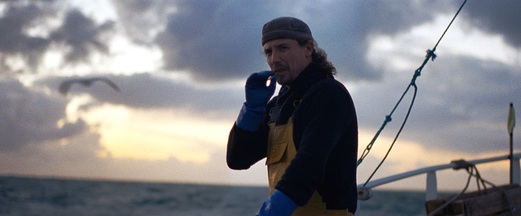 Samuel Collardey's Land Legs is an in-depth character study of Dorn, a 36-year-old deep sea fisherman, who spends countless days and nights away from his family. A divorced father of two children, Dorn has primary custody of both his children, but after his 16-year-old daughter is discovered to be 4 months pregnant, Dorn's ex-wife and bi-proxy, social services, begin to question whether the deep sea fisherman, who is sometimes gone for months at a time, should retain custody. Only knowing life at sea, Dorn decides his only chance to keep his family together is by becoming a day fisherman. Quitting his deep sea fisherman job, Dorn attempts to startover, though having no capital makes his decision one he may regret as his lack of income pushes his family to the brink of homelessness. Land Legs is a powerful social drama that uses the character of Dorn to capture the importance of self sacrifice for the betterment of the family. Dorn is well intentioned, but a character who knows very little outside of fishing, and much of Land Legs is a film about a man trying his best, maturing both as a man and as a father. Land Legs captures the downright difficulty of starting over in life after reaching a point of stability, with Dorn struggling to sell himself to potential investors due to his limited experience as a sea captain. Towards the end it becomes clear that Dorn simply won't be able to achieve his goal, destined back to his life as a deep sea fisherman due to his inability to raise money. While some may find this conclusion depressing, I'd argue it is an important decision by the filmmakers as it leads to Dorn making the ultimate sacrifice, giving up his own custody of his children for their betterment, as his job as a deep sea fisherman is what ultimately provides his children with the financial security needed to flourish. While it may not seem like it on the service this acknowledgement by Dorn is the sign of his ultimate maturation, as he sacrifices his custody for his children's overall betterment. Simple, straightforward, and emotionally effective, Samuel Collardey's Land Legs is is a powerful character study of a man maturing as a father and a man. 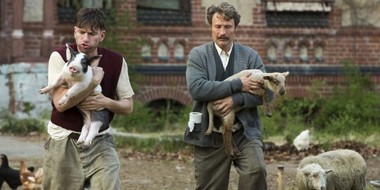 Anders Thomas Jensen's Men & Chicken is one of the most unique and bizarre family dramas you are bound to see, a pitch black comedy about a pair of socially-challenged siblings in Gabriel and Elias who after their father's death learn that they are adopted half-brothers. Gabriel and Elias couldn't be more different. Gabriel is the more educated of the two, a worn down, down-on-his luck university professor studying sociology. On the other hand there is Elias, who is essentially the equivalent of a big dumb animal, a simpler man who shows little concern for anything outside of his misguided pursuit of women and other trivial knowledge. Discovering that their biological father lived on the secluded island of Ork, the two half-brothers head their seeking answers. Initially unwelcome by their newfound kin, a group of three additional half-brothers who sport the same hereditary harelips and lunatic tendencies as Elias, Gabriel and Elias eventually are accepted into their dilapidated mansion that has been seriously overrun by various farm animals. As the misfit group gets to know each other, Gabriel begins to uncover a dark family secret that ultimately binds them all together. Anders Thomas Jensen's Men & Chicken is a bizarre and outlandish comedy that transports the viewer into utter revulsion through the eyes of Gabriel, an educated man who finds himself in a near, primal world. Not since Withnail and I has a film presented such filth and anarchism in such a vibrant and repulsive way, as this dilapidated mansion serves as a the perfect setting for an introduction into the three half brothers secluded and bizarre way of life. On Gabriel's arrival it's clear that all of his half brothers suffer from the same under-educated, simplistic, borderline primal. They live life differently, completely on the fringes of society, where the oldest brother Franz provides the closest thing to a father figure, running a chaotic household where any type of resistance is punished by violence. Their world is completely different than that of civilized life, and much of Men & Chicken's initial fascination come from Gabriel and Elias attempting to fit in, as the filmmakers exploring the idea of what happens when nature lives on in the absence of any nurturing. It becomes apparently early on that Elias has much more in common with his primitive kin, as Gabriel represents the audiences perspective, a man who feelis very out of place among these primitive character, simply wanting to get to the bottom of truth about his father as soon as possible. Without going into plot details, Men & Chicken is bother a black, absurdest comedy, and a fascinating mystery, with the heart of the story being about the importance of family and the gift of life in general. Gabriel is a character who harbors much resentment for his younger brother, Elias, a simpleton who Gabriel perceives being the man responsible for his past relationship struggles and lack of companionship. Elias is a well-intentioned, yet abrasive man, and the two brothers' arrival, fall-out, and eventually acceptance is truly the heart of this bizarre comedy, as Gabriel begins to accept his brother for who he is, regardless of his many faults. Mads Mikkelsen as Elias is endlessly watchable, with the veteran actor giving a performance that is so far outside of the norm, capturing the socially awkward, child-like ways of a character who never "grew up" in the traditional sense. By the end of Men & Chicken I couldn't help but appreciate the film's truly unique narrative, as the filmmaker essentially presents the viewer with a speculative sociologically experiment about nature and nurture. The film is bizarre, singular, and compelling, and despite bookending voice over that essentially spells out the overarching theme, one that proclaims the preciousness of life and importance of family, Men & Chicken remains a film one cannot help but appreciate for its utterly unique vision. 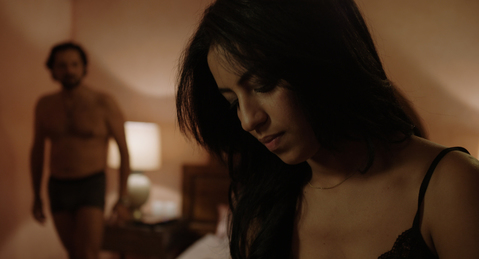 Nabil Ayouch's Much Loved opens at a small dining room, where a group of woman gossip about their profession, the sexual exploits of being a prostitute, over a dinner of couscous, cocaine, and alcohol. The conversation is crude by conventional standards, with the woman speaking about their sexual exploits in such a pragmatic way that it is uncomfortable for the viewer, exhibiting how these women are conditioned this way due to the harsh environment in which they live, where their body is their sole form of income. From there the prostitutes go to a wild party thrown by a group of Saudi Arabians, where they flaunt their bodies, doing degrading things for money. Nabil Ayouch's Much Loved is a unflinching, raw film chronicling the exploits of a group of women in Morocco who make their living as prostitutes. The film is fast-paced, well-crafted and an uncomfortable experience, as the film focuses on three such individuals, each struggling in different ways with the cruel fate which has been dealt to them. Much Loved works due to the strong characterization of Noha, a 28-year-old matriach of the group of upscale call girls, who is essentially the closest thing to a mother many of them have. Noha is a character who has been hardened by the circumstances of her reality, doing whatever it takes to make as much money as possible to support her mother and son, who resent her greatly due to her profession. She is a character who is tough and hardened, but thanks to phenomenal performance by Loubna Abidar and nuanced filmmaking, Noah is also a quietly tragic character. This is a woman who feels the shame and guilt from her mother and has a son who disowned her, and while Noha puts on a face of strength, and presents herself with a workmanship type attitude, it's clear that she herself, much like her younger counterparts, still yearns to find something beyond pleasure, hoping and yearning deep down to feel appreciated on a less superficial level and loved like a true woman should be. The other two central characters, Soukaina, a woman who still harbors romantic sentiment towards a poor man who cares for her, as well as Randa, the youngest and most progressive of the group who struggles to accept her status as a prostitute, are also compelling but this film is truly about Noha and her matriach role over this group of woman who all struggle in a world of sexual oppression, machoism, and the deeply entrenched culture of Moroccan society that is dogmatic in its viewpoint of sex and sexual orientation, where homosexuality is a mortal sin and woman are viewed more as property than as equals. There have been man films dealing with female oppression in recent years on the film festival circuit, and while Much Loved doesn't have much new to say, the film does a better job than most at exhibiting the sense of pain felt deep down in these characters, cutting beyond the mere pain of poor treatment and exposing the true mental anguish this type of oppression creates. All of these characters, even the hardened Noha are individuals who want to viewed in a way that stems far beyond the physical, hoping to be appreciated for their minds, not just their bodies. Following the lives of three woman, Nabil Ayouch's Much Loved captures the importance of unity, as while these characters routinely fight and bicker, due mainly to angst stemming from their lifestyle, they are all each other has, a family of sorts who must stick together to survive. |
AuthorLove of all things cinema brought me here. Archives
June 2023
|
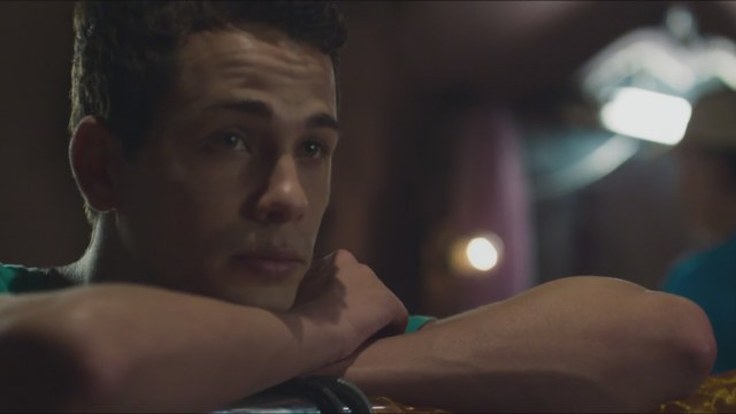
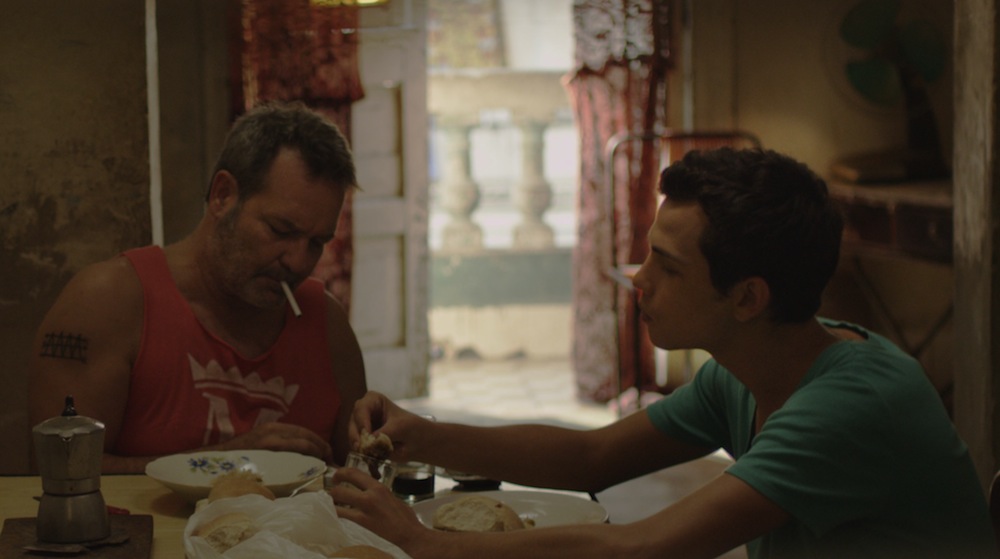
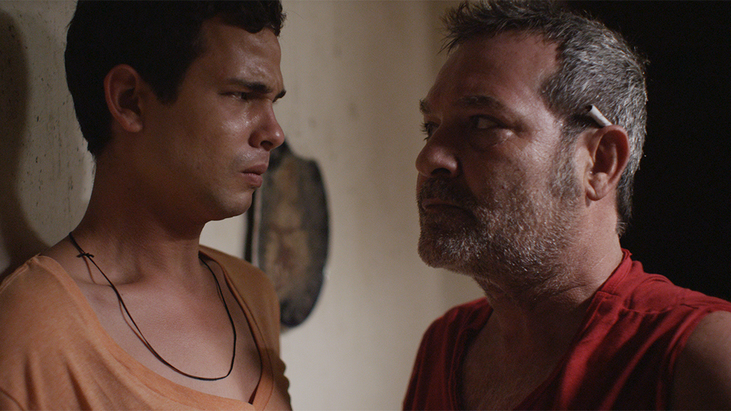
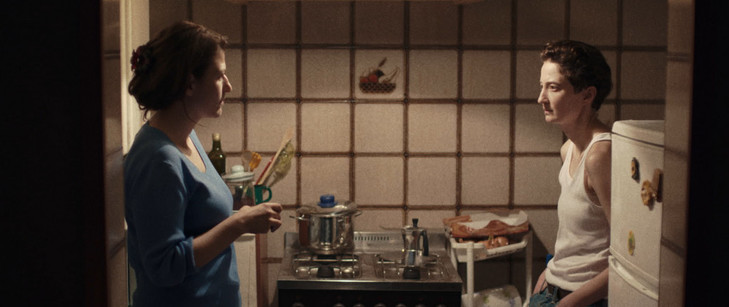
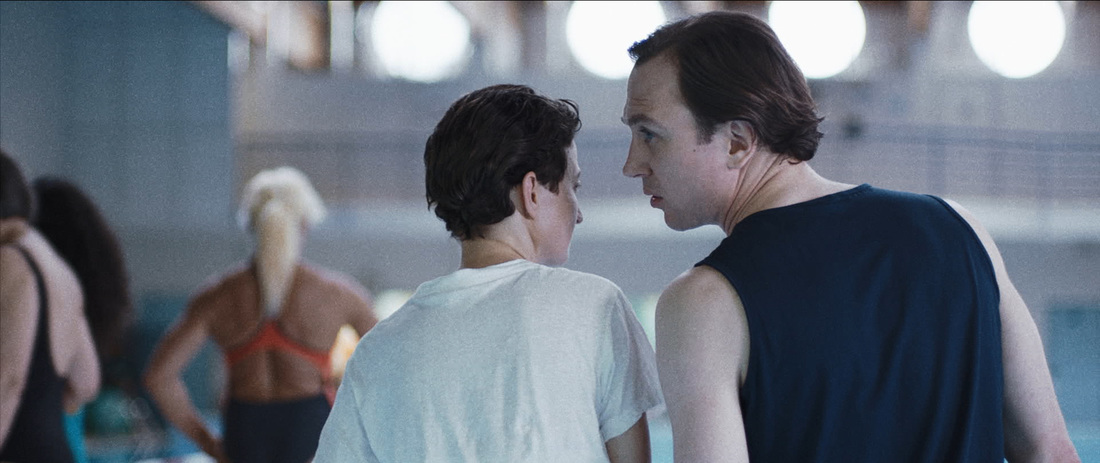
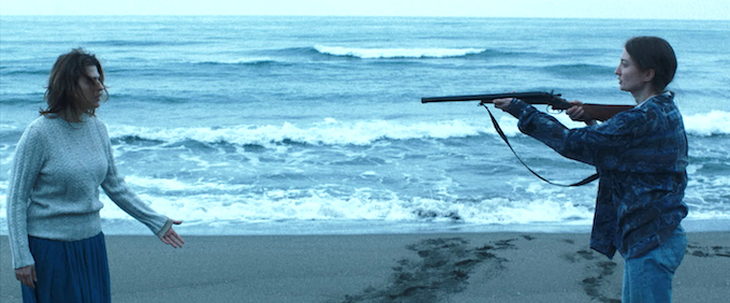
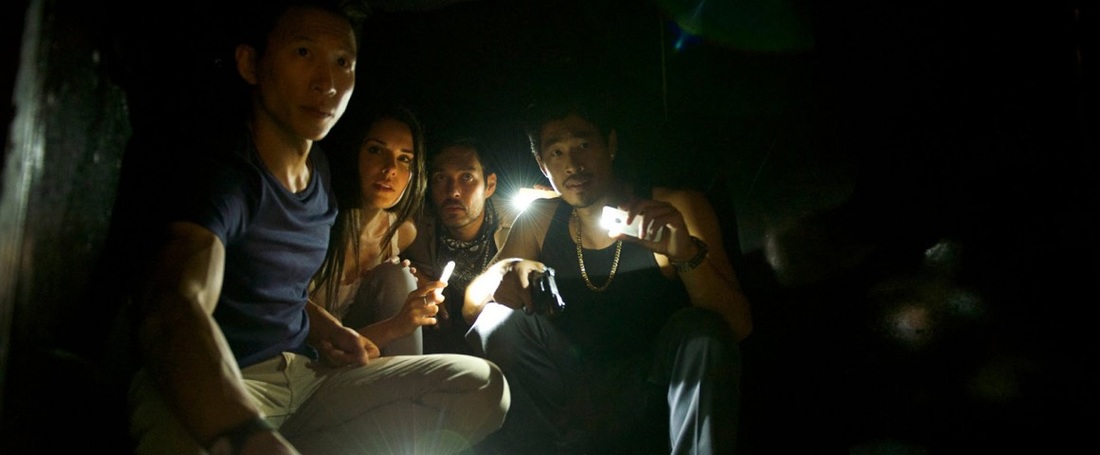
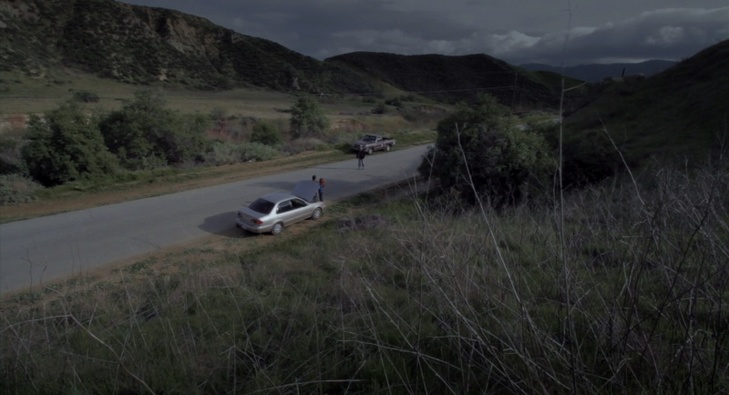
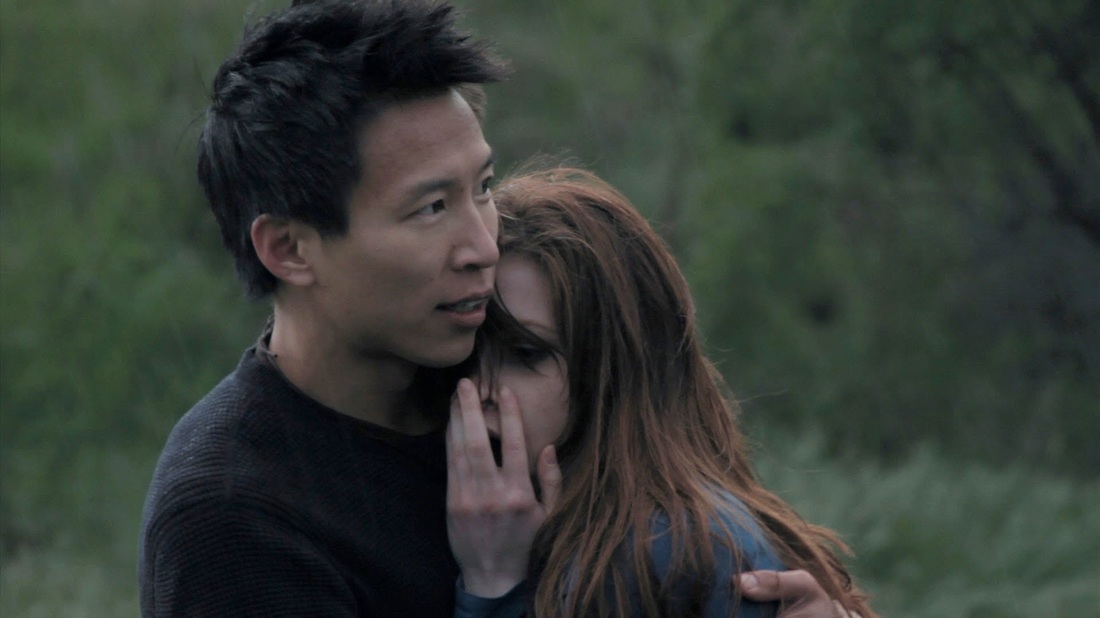



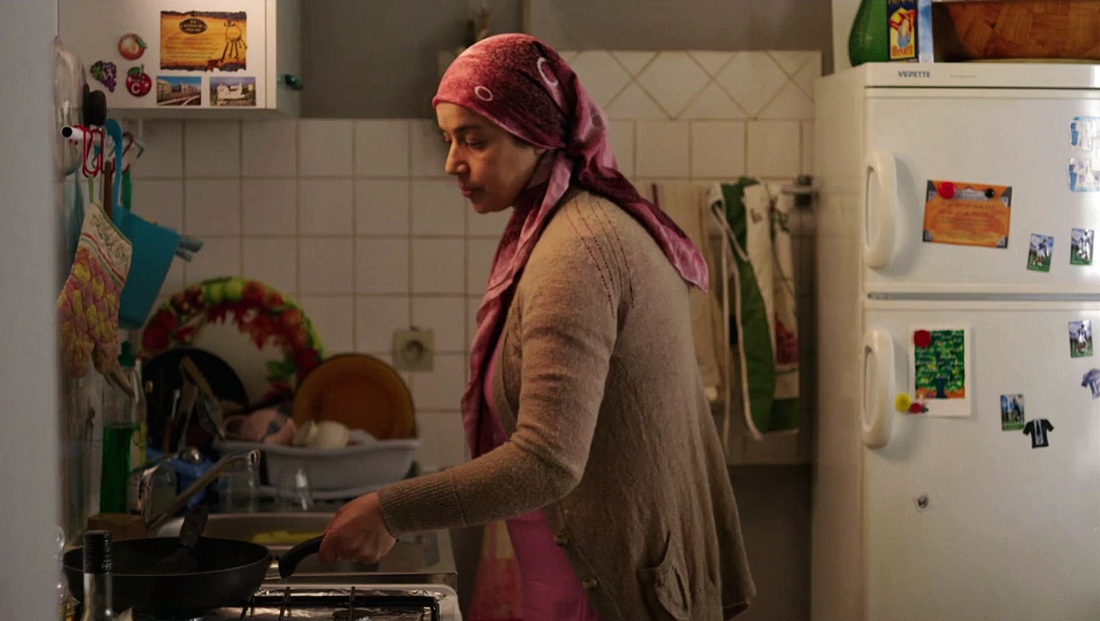
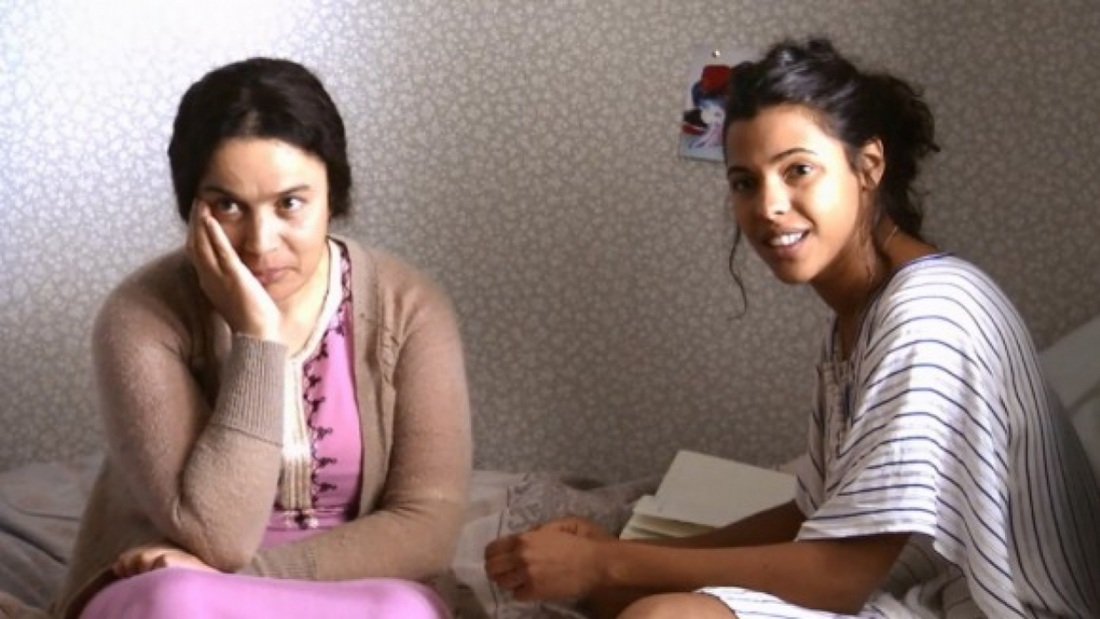
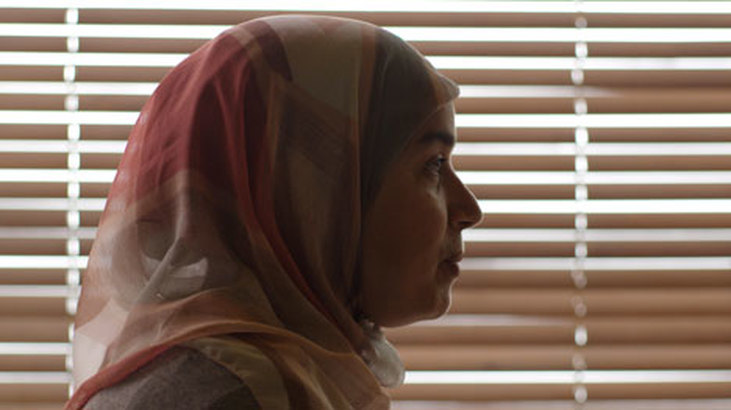
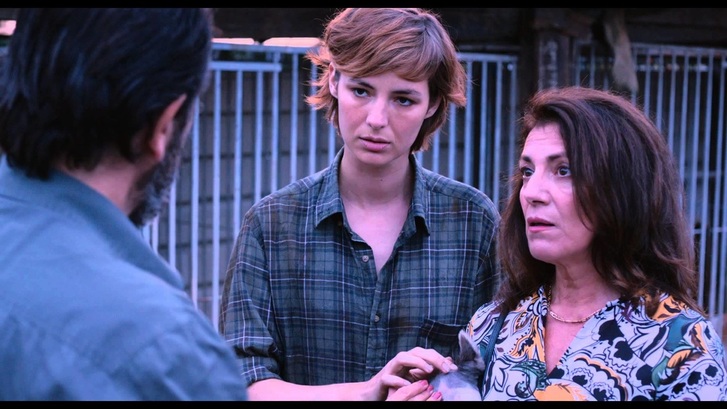
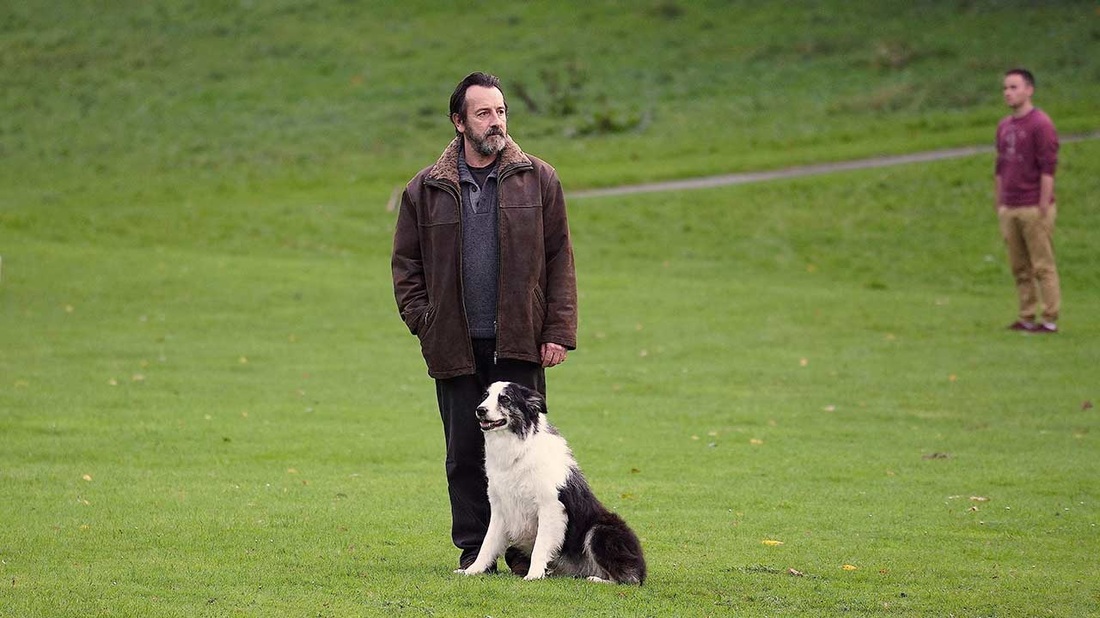
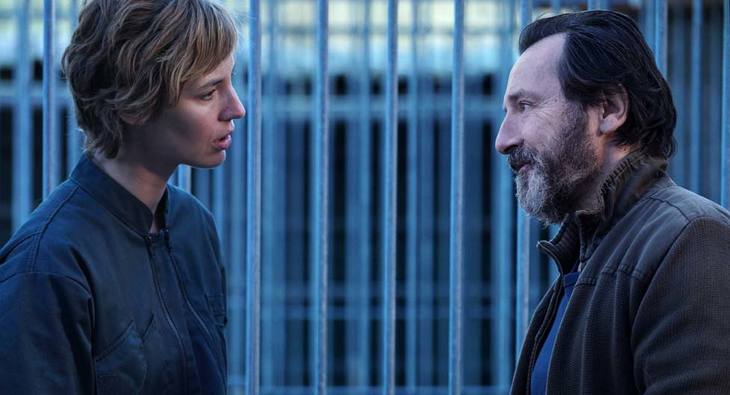

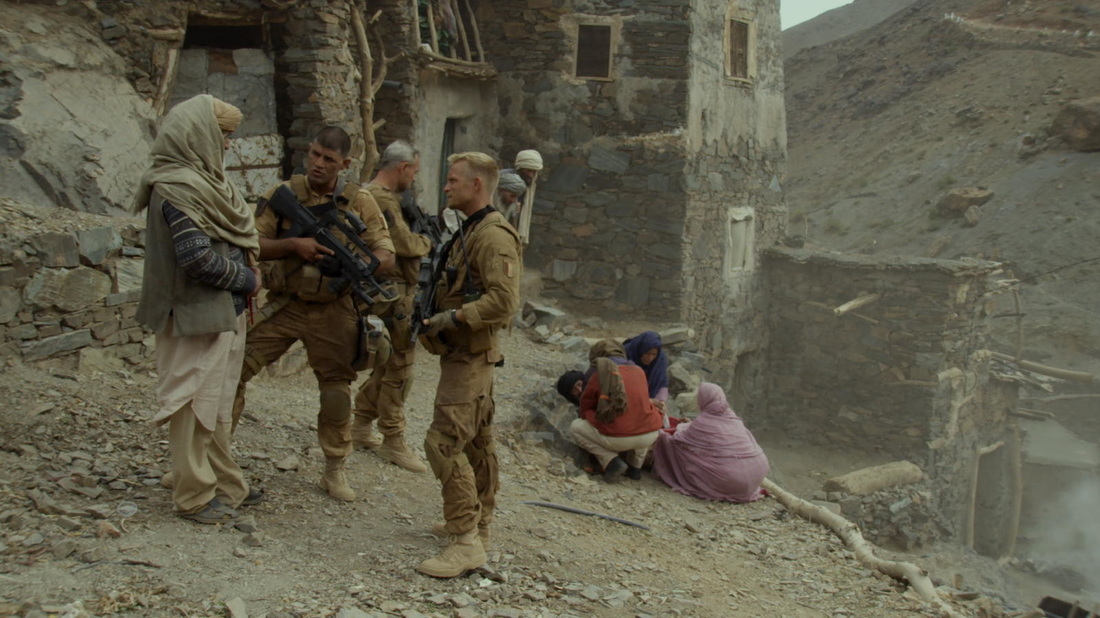

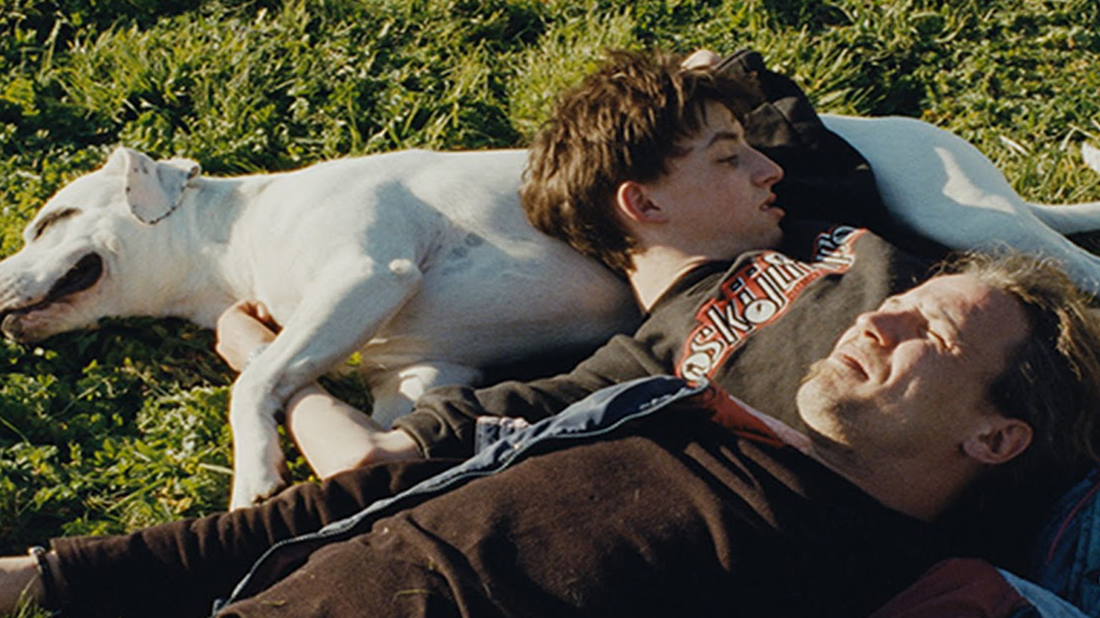
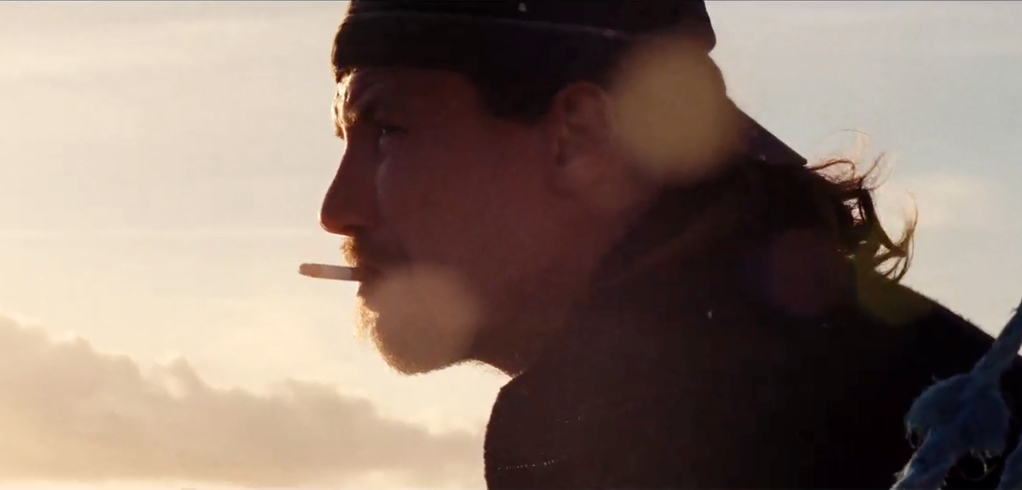
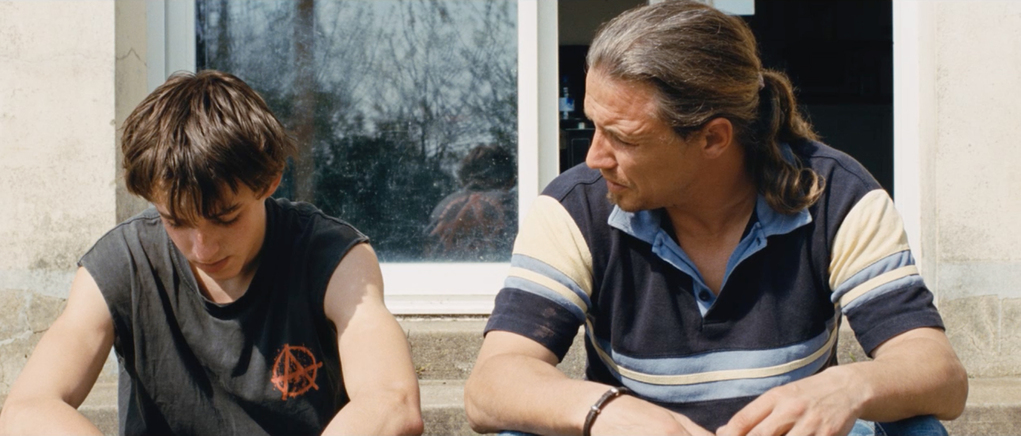
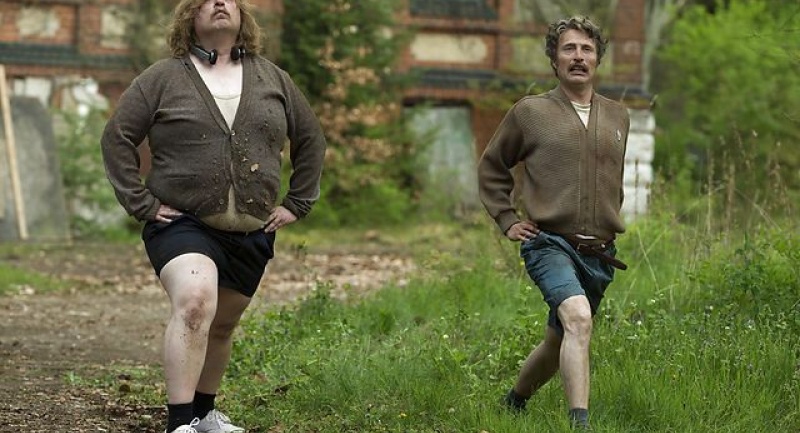
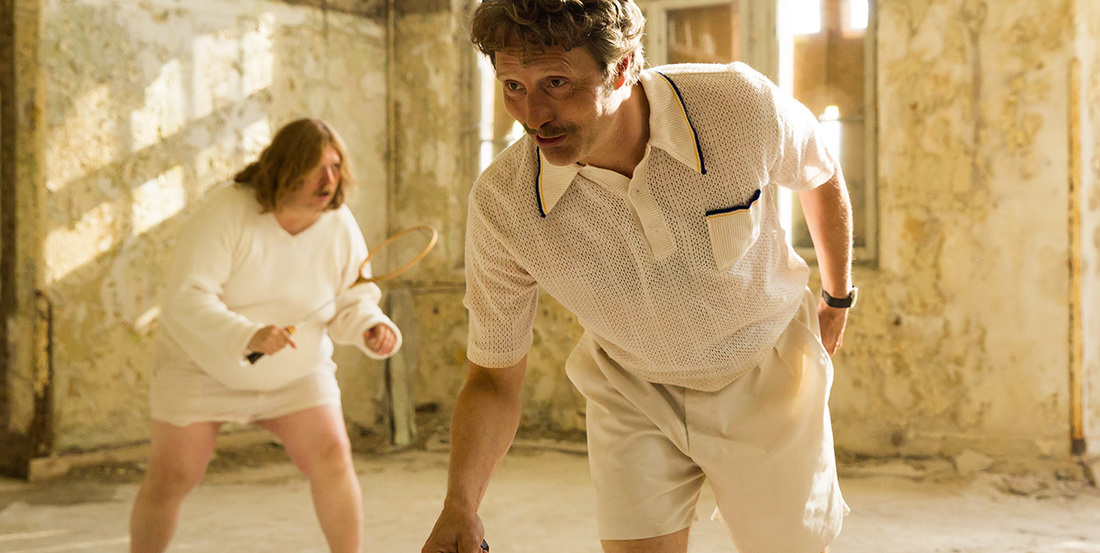
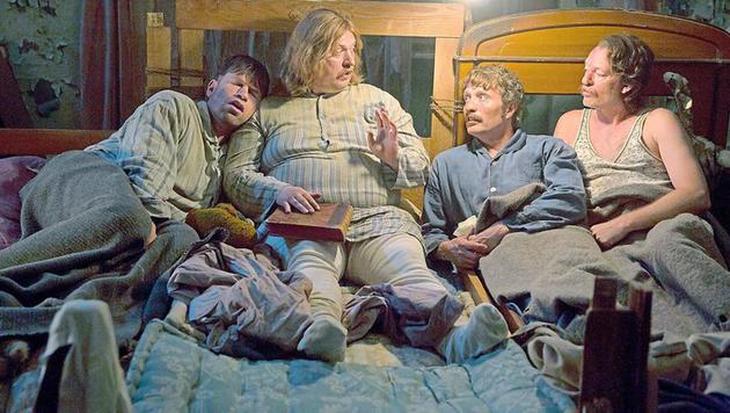
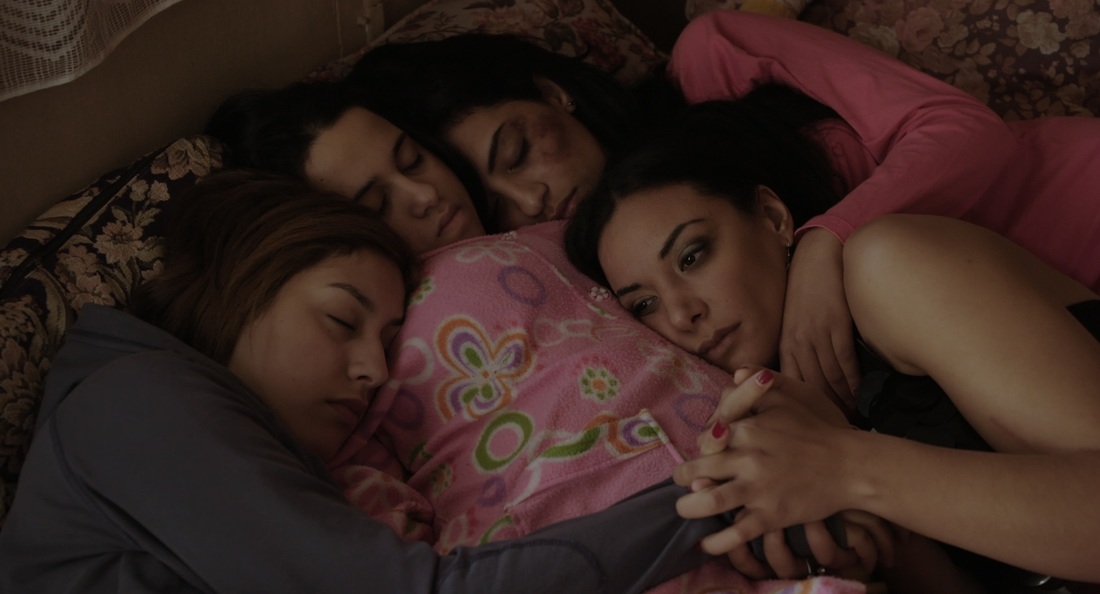


 RSS Feed
RSS Feed
